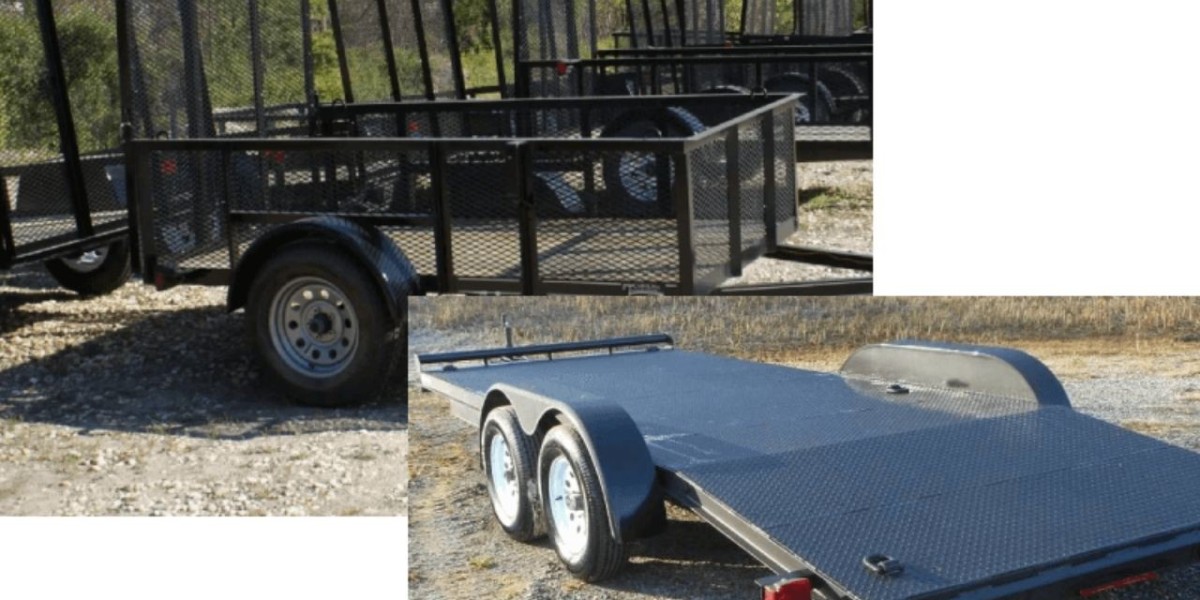Have you ever wondered how a well-maintained trailer can save you from costly repairs and enhance its longevity? Proper trailer maintenance is crucial for safe and efficient transportation. For those exploring Trailer sales in Suffolk, Virginia, understanding maintenance tips before and after purchase can make a big difference. Regular upkeep ensures your trailer stays reliable and reduces the risk of accidents or breakdowns.
Regular Inspection Checks
Routine inspections are the cornerstone of trailer maintenance. Start with the trailer tires and wheel sales section. Ensure all tires are free from cracks, bulges, or uneven wear. Check tire pressure regularly, as underinflated tires can lead to poor handling and increased fuel consumption. Additionally, examine the wheels for rust, damage, or loose lug nuts. Rotating your tires periodically can also extend their lifespan and improve safety.
Brake System Maintenance
A trailer’s brake system plays a critical role in safe towing. Inspect brake pads, shoes, and drums for wear. If your trailer has electric brakes, test the connections and ensure the brake controller is functioning correctly. Cleaning brake components and lubricating moving parts prevents corrosion and maintains responsiveness. Regular brake checks reduce stopping distances and protect both your trailer and towing vehicle.
Lights and Electrical System
A fully functioning electrical system is essential for road safety. Check all lights, including brake lights, turn signals, and running lights. Ensure wiring is free from frays, corrosion, or loose connections. Replace damaged bulbs promptly. Periodic inspection of the battery, fuses, and connectors keeps your trailer visible to other drivers and prevents electrical failures during transit.
Lubrication of Moving Parts
Lubrication prevents unnecessary wear on hinges, couplers, and suspension components. Apply grease to wheel bearings, hitch components, and suspension pivot points. This reduces friction, prevents rust, and ensures smooth operation. Regular lubrication is inexpensive but significantly extends the life of moving parts and enhances overall trailer performance.
Cleaning and Rust Prevention
Regular cleaning protects your trailer from rust and deterioration. Wash the exterior to remove dirt, salt, and debris, particularly after exposure to wet or salty roads. Apply a protective wax or sealant to painted surfaces to guard against corrosion. For trailers with metal frames, inspect for rust and treat affected areas promptly. Maintaining a clean trailer also helps preserve its resale value.
Tire Maintenance and Replacement
Pay attention to tire rotation, alignment, and tread depth. Worn or damaged tires can compromise safety and handling. Always replace tires that show signs of aging, cracks, or tread wear beyond the recommended depth. When selecting new tires, consider quality, load rating, and compatibility with your trailer. Trailer tires and wheel sales professionals in Suffolk, Virginia, can guide you in choosing the right options for your needs.
Proper Storage Techniques
How you store your trailer impacts its longevity. Store your trailer on a level surface to prevent tire flat spots and structural stress. Cover it with a weatherproof tarp or use a dedicated trailer cover to shield it from sun, rain, and debris. Disconnect the battery if storing for extended periods to prevent drain. Proper storage reduces wear and helps maintain performance when the trailer is in use.
Weight Distribution and Load Management
Overloading or uneven loading can damage the trailer and create unsafe conditions. Always adhere to the manufacturer’s recommended weight limits and distribute cargo evenly. Use tie-downs, straps, and padding to secure items. Regularly inspect cargo areas and anchor points to ensure nothing shifts during transit. Proper weight management reduces strain on tires, brakes, and suspension.
Seasonal Maintenance Considerations
Different seasons require different maintenance approaches. In winter, check for salt and moisture accumulation that can cause rust. In summer, ensure tires are properly inflated as heat can affect pressure. Lubricate hinges and moving parts before and after seasonal changes. Preparing your trailer for seasonal conditions enhances durability and reduces unexpected repair costs.
Hitch and Coupler Care
The hitch and coupler are vital components connecting your trailer to the towing vehicle. Regularly inspect for cracks, rust, or wear. Lubricate moving parts to ensure smooth operation. Make sure all bolts and pins are secure before every trip. A properly maintained hitch prevents accidents and ensures your trailer remains safely attached during transit.
Documentation and Maintenance Records
Keep a record of all maintenance activities, including inspections, tire rotations, brake checks, and repairs. Documentation helps track the health of your trailer over time and can be useful for warranty claims or resale. A well-documented maintenance history demonstrates responsible ownership and can enhance the trailer’s value when selling or trading in.
Conclusion
Maintaining a trailer in Suffolk, Virginia, requires consistent attention to inspection, lubrication, cleaning, and careful load management. By following these tips, including checking trailer tires and wheel sales and staying proactive with brakes, lights, and storage, trailer owners can ensure safety, reliability, and longevity. A little effort in maintenance today prevents expensive repairs tomorrow, making your trailer a dependable asset for years to come.







